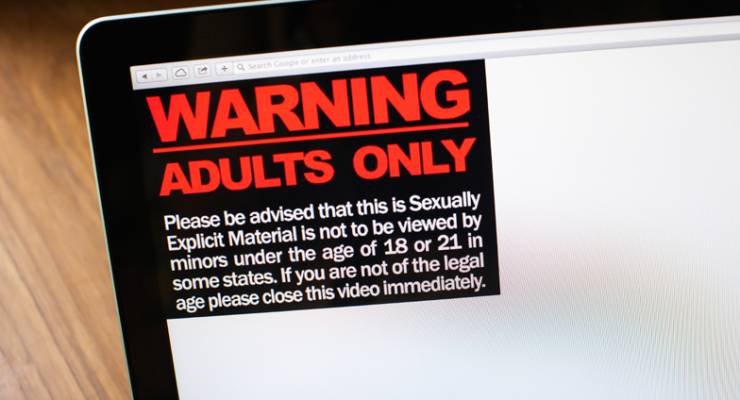
People downloading porn from piracy websites could face the strong arm of the law, if the adult entertainment industry follows in the footsteps of Village Roadshow.
Groups like Village Roadshow have been lobbying the government to crack down on pirates — and their efforts could inadvertently help adult entertainment companies protect their own copyright in Australia, Eros Association has advised.
Joel Murray, business manager for the Eros Association — the lobby group for adult organisations in Australia — told Liberal Democrat Senator David Leyonhjelm’s Senate inquiry into so-called nanny state laws that the adult entertainment industry could use anti-piracy laws to enforce their copyright.
“Adult media is one of the most pirated content of all copyrighted material. It’s interesting to see, for example, Village Roadshow being lobbying the government for copyright infringement, but I don’t know if the government realises that that may also open up to the adult industry calling on Australian law enforcement to start enforcing copyright of adult films,” Murray said on Friday.
“I mean, that in and of itself would be extremely laborious and not what the government intended.”
In the United States, as Hollywood pursues individual torrenters, several adult film companies have also chased alleged porn pirates in court, seeking a settlement outside the court to avoid embarrassing those who have illegally downloaded adult content.
The only company to attempt this sort of action in Australia in the last few years is Voltage, which failed in its attempt to take on people who downloaded the Oscar-winning film Dallas Buyers Club. Voltage abandoned its case after the court asked the company to put up $600,000 in bond money to get the details of more than 4000 people it claimed to have downloaded the film.
Village Roadshow co-CEO Graham Burke told Crikey last month that the company was “actively considering” launching a similar case sometime in the future, but it has backed away from negotiating a “three-strikes” policy that would warn users several times before they ended up in court. Comms Alliance CEO John Stanton told a telecommunications industry forum earlier this month that the negotiations were on hold for 12 months while the focus remained on court-ordered blocking of piracy websites. The first case of this is due in court next week.
Murray indicated that much of the problem caused by downloading was due to the lack of legitimate access to adult material in Australia, with the restrictive and expensive nature of Australian classification laws preventing a lot of material from being classified and sold in Australia legitimately. The adult production companies in Australia mainly produce their work internationally, he says, costing the Australian economy.
“In effect, that’s money in the Australian economy that doesn’t enter the Australian economy, so from an economic perspective it doesn’t make sense.”
Eros called for a review of Australian classification law now that it had moved from the Attorney-General’s Department to the Communications Department, but any review is likely to face strong opposition from religious right organisations and politicians. Crikey reported earlier this month that six Labor senators had called for mandatory internet filtering to be reassessed, and Liberal nominee for Parramatta Maroun Draybi has said he would advocate for opt-out internet filtering if he won preselection for the seat.
At the Australian Christian Lobby’s national conference over the weekend, spokesperson Wendy Francis also called for mandatory internet filtering to be considered again.
Despite the lobbying from right-wing elements of both parties and fringe religious lobby groups, there is little appetite for either major parties to pursue internet filtering at this time. Labor’s policy was abandoned during the term of the Gillard government in favour of a block of child abuse material, while the Coalition’s own opt-out policy lasted less than five hours, two days out from the 2013 election.
Eros’ Murray said that the UK model the ACL and conservative politicians would like to see adopted in Australia “has not succeeded” in preventing access to pornography online.








In the US some porn producers deliberately upload their products so that they can make money from threatening the down-loaders. This is particularly useful for videos that have very poor sales.
There are three fairly important letters missing from this piece.
VPN
That would take the porn back to the illegal status it “enjoyed” previously so that, like drug dealers, they need have no concern about their customers except the ability to pay.